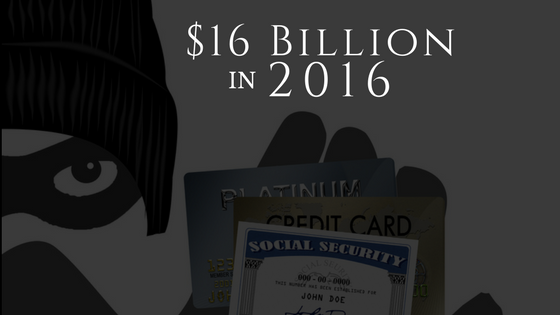If you haven’t heard the term “identity theft” before you may have been living under a rock. A recent Identity Fraud Study was released this year by Javelin Strategy & Research; this study revealed that 15.4 million Americans were victims of identity theft. These crooks were successfully able to rob two million more victims and stole $16 billion dollars.
What is Identity Theft?
According to the Federal Trade Commission,(FTC), theft of an individual’s identity occurs when someone uses your information, like your name, Social Security number to commit fraud or other crimes. Thieves are very talented when attempting to commit these types of crimes, and they look for obvious ways to obtain your information.
Ways Thieves obtain your Identity:
- Stolen Credit Cards
- Documents or receipts from the trash
- Phone or email scams
- Hacking unsecured and wireless networks
Types of Identity Theft?
Once a thief has gained access to your personal information they can obtain access to your existing credit cards, open new accounts, file fraudulent tax returns and more. Below we have named a few:
- Financial Theft
- Medical Theft
- Insurance Theft
- Criminal Theft
- Driver’s License Fraud
- Social Security
- Phishing Scams
Ways to Protect Yourself
1.Be Careful of What You Share. With social media and technology on the rise, these pesky crooks can find out a lot of personal information about just by doing a simple search. The information you share on Facebook, Linkedin and all the other media sites these criminals may be able to use the information you have shared to validate your identity. When you are sharing be careful of the information you share.
2.Keep Financial and Personal Information Secure. Here is another example of where technology can come back to bite us if we are not careful. Many Americans use their computers to pay bills, keep bank statements, financial planning and much more. If you do this the important thing to remember is to make sure your computer has a firewall installed; you should use anti-virus and anti-spyware software and secure your wireless network. Another important reminder is when you do have the actual hard copy of any financial or personal information dispose of it properly, and always keep them in a safe place.
3. Keep Your Cellphone Protected. Cell phones apps allow us to track our bank accounts, track your budget and finances, store credit card information, and just about anything else your heart desires. When downloading these apps make sure you are using a trusted and reputable company. Always check the ratings and reviews of any app you are downloading. Make sure you secure your device with a strong password, in case you lose it.
4. Make Sure Your Passwords Are Strong and Secure. Create strong passwords, not easy to guess. Using passwords that contain, kids names, birth dates, maiden names or anything that may be guessed.
Are You a Victim?
If you believe your identity has been stolen, it is necessary to immediately contact any financial institutions we have accounts with and place a hold on them. You will also want to contact the FTC to file a formal complaint. Make sure to provide them with any and all questionable activity so they can thoroughly build a case.

